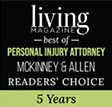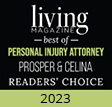What to Do After an Accident?
Trust Our Team To Take Care of You After a Car Accident
A car accident can be a harrowing experience. Whether a collision resulted in serious injuries or seems to be limited to property damage, dealing with the aftermath can be overwhelming. You may be worried about how you can protect yourself legally and financially, how to pay for expensive medical treatment, and how you can hold the responsible party fully accountable for the accident. Fortunately, there are several steps you can take to protect your rights and seek compensation for your injuries and damages.
Burress Injury Law provides experienced, dedicated legal help and representation to those who have been injured in motor vehicle accidents. We understand the challenges you may be facing, and we will work diligently on your behalf to help you secure the compensation you need.
Burress Injury Law's talented team has 250 years of combined experience, half of which was previously spent representing insurance companies and Fortune 500 companies in high-stakes cases across the U.S. We exclusively help serious injury victims and families of wrongful death victims. With our extensive experience on both sides and 400 trials under our belt, Burress Injury Law holds a major advantage, because we understand how insurance companies value claims and how to motivate them to make higher settlement offers on our clients' cases.
The Burress Injury Law attorneys have handled over 4,000 cases, earning a reputation as the area's premier personal injury law firm and recovering more than $200 million on behalf of our clients. Our firm handles serious injury and wrongful death cases, including motor vehicle accidents, 18-wheeler wrecks, motorcycle, bicycle, and pedestrian accidents, plane and boat crashes, and cases involving drunk driving, brain injuries, and product defects.
Steps to Follow After a Car Wreck
Even though the immediate aftermath of a collision can be frightening and overwhelming, there are some things you can do to protect yourself and ensure that you are in the best possible position to receive financial compensation. You will want to:
- Get to a safe place. Car wrecks can happen anywhere. You could be on a highway, crowded city street, or rural road. Take in your surroundings and any additional dangers and move out of high-traffic zones if it is safe to do so.
- Call 911 and tell emergency personnel you are injured. The health and safety of everyone involved in the wreck should be your priority. Especially if you are injured, dial 911 and request officer assistance. An officer will arrive on the scene, investigate the crash, and normally prepare a crash report. The crash report will include necessary information about the parties involved, the crash scene, insurance companies and policy numbers, damage to each vehicle, liability (fault) determinations, and basic injuries. Be sure to tell the responding officer and emergency personnel (EMTs) about all of your injuries, abnormal health symptoms, and pain you have so the crash report will document this information. Emergency personnel will ask you questions about the crash. Be very thorough with the EMTs so they can give you the proper medical care, which may include transporting you to a local hospital.
- Check for injuries. In addition to checking to see whether you have suffered any bodily harm, you will want to attend to the needs of others. If you are able to, get out of your car and check on the other passengers in your vehicle as well as the occupants of the other car or cars involved in the accident. If necessary, you can contact emergency medical services and have them come to the scene of the accident, provide any treatment that is needed, and transport people who have been seriously injured to a hospital.
- Exchange information with the other driver or drivers involved in the accident. Be sure to get the contact information of the other driver or drivers involved in the accident, including their name, address, and phone number, as well as their insurance company and policy number. If you do not feel comfortable approaching the other driver for their information, ask the police officer to help you.
- Take pictures of the scene of the accident. It is important to gather evidence at the scene of the accident as soon as possible. If you have a camera or camera phone, and if you are not too seriously injured to do so, you will want to take pictures of the scene. Be sure to document damage to all of the vehicles involved in the accident, injuries suffered by drivers and passengers, skid marks or debris in the road, traffic signs or signals, and any other relevant information, including the at-fault party's license plate. These pictures will be helpful for establishing liability when pursuing a personal injury claim.
- Go to the emergency room. If you are hurt, the best thing for your body – and your claim – is to go to an emergency room immediately after the crash occurs. Your primary care physician is unlikely to agree to see you after a car crash. If you wait to get medical treatment or go to an "Urgent Care" type clinic, the insurance company will downplay your injuries. Going to the emergency room is especially important to evaluate traumatic brain injuries and ensure there is no hemorrhaging (brain bleeds). It is important to seek medical attention even if you do not think you have been seriously injured, as adrenaline can mask pain.
- Get medical treatment. It is important to seek medical attention even if you do not think you have been seriously injured. Adrenaline can mask pain, and some injuries, such as whiplash or traumatic brain injuries, might not have noticeable symptoms until several days or even weeks later. Medical reports from your treatment can provide documentation of all of the ways you have been affected, and they can show that your injuries were directly related to the collision.
- Send your insurance company a copy of the crash report – but do not submit to a recorded interview. You should never give a recorded statement to any insurance company – yours or that of the other driver – about your injuries or how the crash occurred. If you do not retain a qualified personal injury law firm right away, you will have to report the crash to your own insurance company. It is sufficient to send them a copy of the crash report, but you should decline to provide a recorded interview or written statement. Depending on your policy, your insurance company may pay for repairs to your vehicle or reimburse you for rental car expenses while your vehicle is being repaired. If the other driver did not have insurance, you may be able to receive uninsured motorist coverage that will address your injuries and property damage. Your attorney can speak to your insurance company on your behalf and negotiate a settlement that will fully address your injuries and damages.
- Contact a personal injury attorney. Finally, you should always seek help from an experienced attorney like those at Burress Injury Law as soon as possible. We are committed to protecting the interests of victims and their families, helping them obtain necessary medical attention, and maximizing the value of their claims while they focus on their health and family.
See our blog for more information on what to do after a car wreck.
Contact Our Plano Car Wreck Attorneys
A car accident is a stressful experience, but by taking the right steps afterwards, you can minimize further stress and ensure that you will be properly compensated. At Burress Injury Law, our car accident lawyers understand what you are going through, and we can help you take the right steps to protect your interests. We will investigate the accident, identify the responsible parties, and work to get you the compensation you need for your medical bills, property damage, lost wages, pain and suffering, and other damages. To learn more about how we can help, call us today at 214-726-0016 or fill out our online contact form to schedule a free consultation.


















 ON
ON
